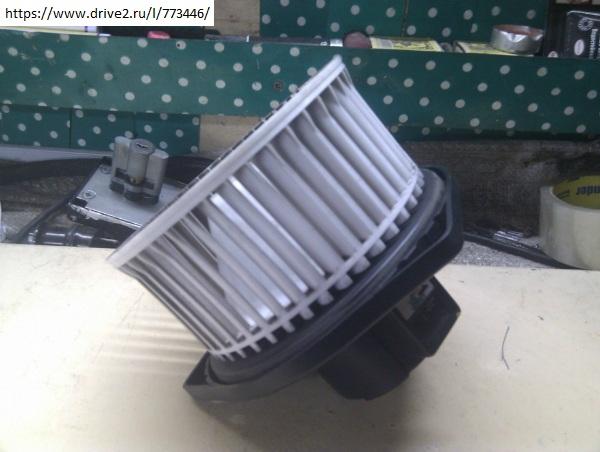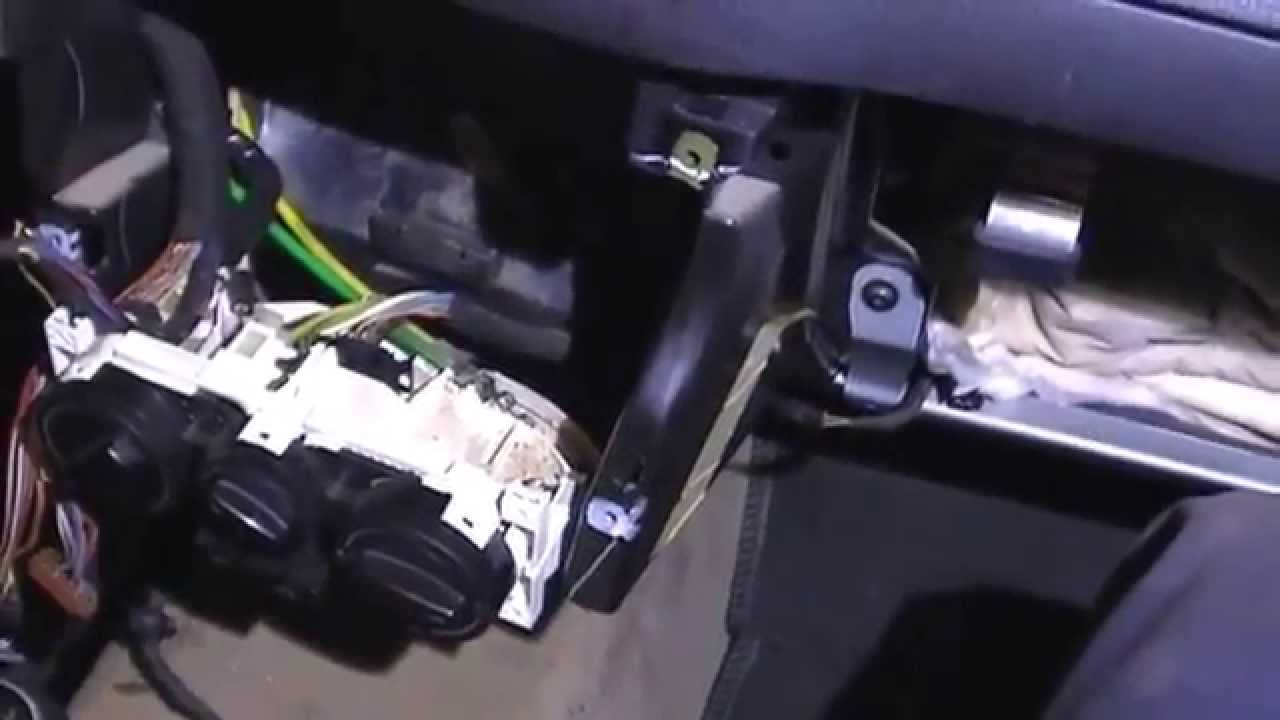
Volkswagen Jetta stove malfunctions
Content
The widespread opinion among domestic motorists that German cars break down very rarely is just a stereotype, which in fact is far from always true. Especially when it comes to space heating: for obvious reasons, the Volkswagen Jetta stove is not designed to work in such adverse weather conditions that are typical for a large part of the territory of our country. However, many additional factors affect the operation of the cooling system, from the quality of the technical fluids used and the frequency of filter changes to individual driving style and road conditions. Therefore, situations in which the Volkswagen Jetta stove freezes are not so rare.
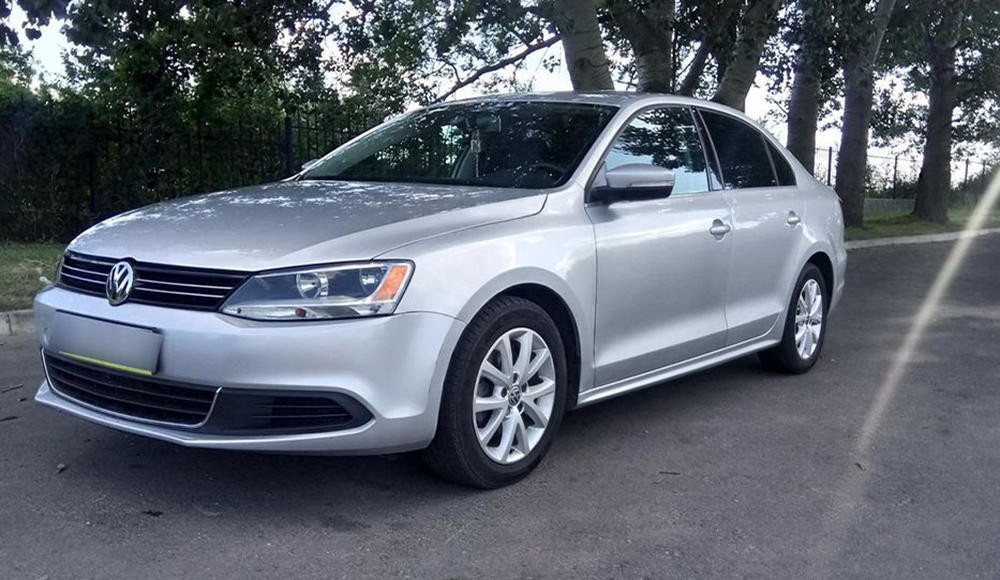
Troubleshooting the stove on the Volkswagen Jetta.
We will tell you why this can happen and how to deal with a cold in the cabin. Since the heating element is part of the cooling system of the power unit, there can be many reasons for the failure of the stove:
- refrigerant leaks;
- ease of the road;
- faulty stove fan;
- dirty heater core;
- blocking the thermostat;
- pump failure;
- head gasket is leaking.
Let's consider each of these faults in more detail.
Antifreeze leak
Coolant is a mixture of water and components that prevent the composition from freezing at low temperatures. Antifreeze or antifreeze is quite expensive, so an uncontrolled decrease in coolant level is bad, at least in terms of financial costs. In the VW Jetta, this process is monitored by a corresponding sensor, so that it never goes unnoticed. However, the problem lies in finding the place of the leak, since this process is not always accompanied by the formation of puddles under the car. The cooling system is made up of many components, each with its own source of leaks. Of course, these are both radiators - the main and the furnace, but if there are much fewer problems with repairing the first one, you will have to sweat to remove the radiator from the heater. And sealing the hole itself is not an easy procedure.
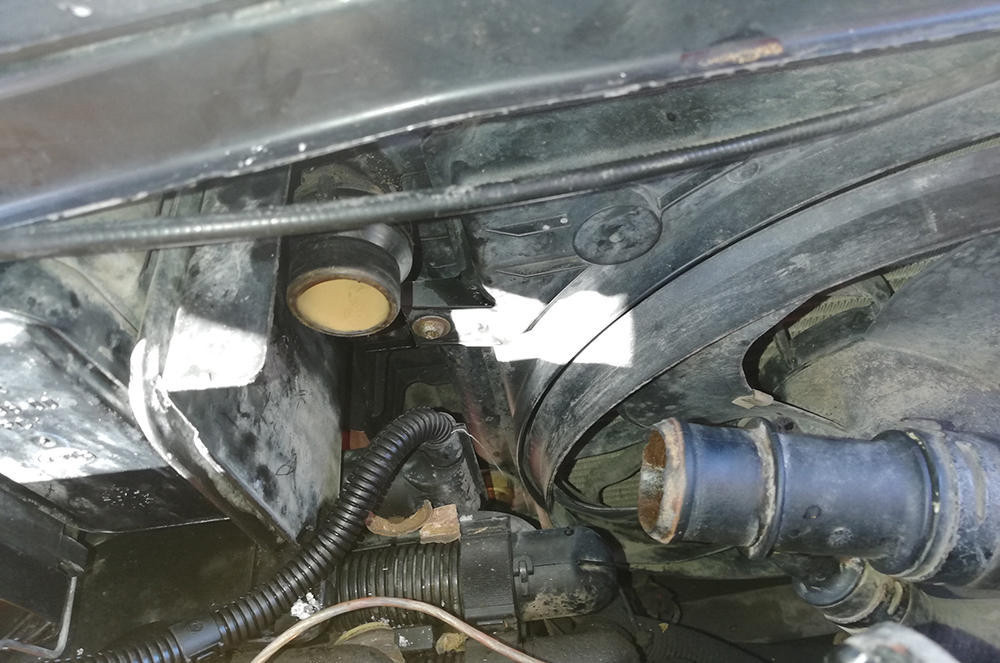
In any case, such repairs are carried out at your own peril and risk. It is much easier to eliminate a leak if its source is the junction of hoses and pipes; here you can get by with tightening or replacing the clamps, and in the latter case it is recommended to use a sealant. If there are cracks on the hoses, the problem is solved by replacing them. The thermostat gasket can leak, which, in principle, is not as bad as a broken cylinder head gasket. Another potential coolant leak is the plastic expansion tank. Cracks often form on its body or stopper, which, upon visual inspection, can be classified as scratches. However, the coolant level sensor itself can fail. In this case, a leak can be detected in time only by regularly inspecting the level in the RB. If this is not done.
Highway airiness
As a general rule, any source of antifreeze leakage is where air enters the system. Thus, a decrease in the level of the coolant is almost always accompanied by the appearance of air pockets that prevent the normal circulation of the coolant through the line. The same problem often occurs when replacing antifreeze, if certain rules are not followed. Since the highest CO point in the Volkswagen Jetta is the stove, and not the expansion tank, air blockages most often occur here. The easiest way to get rid of lightness is to drive up to the overpass (on the inclined part) and press the gas for 5-10 minutes. Air should exit through the expansion tank cap. Some car owners perform this procedure without a plug, but this is not necessary: there is a drain hole in the plug. Here it is important
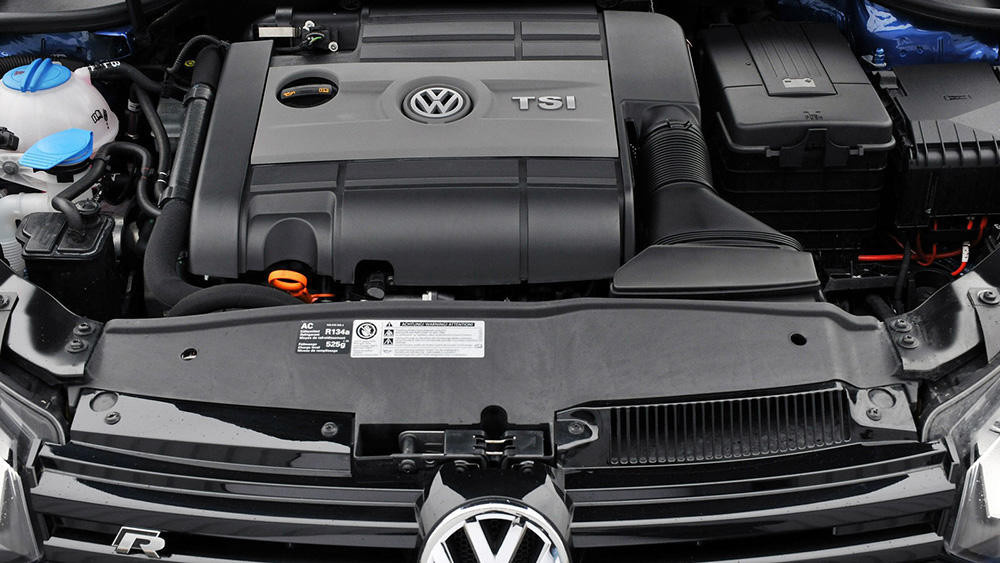
Furnace fan failure
If the Jetta 2 stove does not heat well, a faulty fan may be the cause. In this case, the hot coolant will adequately heat the air in the stove radiator, but this hot air will flow into the cabin by gravity, which is clearly not enough to heat the cabin. The problem is diagnosed very simply: if hot air comes out of the deflectors, but almost does not blow, regardless of the blower mode on, then the heater fan is faulty. Not always such a malfunction is associated with the inoperability of the fan. First you need to check if the fuses V13 / V33, located in the SC block and responsible for the operation of the stove fan and the climate system, have blown. If they are intact, check if power is being supplied to their terminals, the wiring may simply be damaged. If everything is fine here, then the malfunction is really connected with the electric fan itself. First you need to take it apart. This is done in the following way:
- move the front passenger seat all the way back;
- we put on the headlight and lie down under the torpedo;
- unscrew the two screws that hold the protection;
- disconnect the power connector from the electric motor;
- pull the flags towards you, and then turn the fan counterclockwise about 3-4 centimeters and pull down;
- if the impeller does not rotate or rotates with great difficulty, obviously, the fan bearing has been demolished, then it must be replaced;
- often problems with the fan are its pollution; in this case, clean it and install it in place.
In principle, the noises and squeaks emitted during its operation will indicate that the fan is dirty, although the same symptoms are also characteristic of a heavily worn bearing.
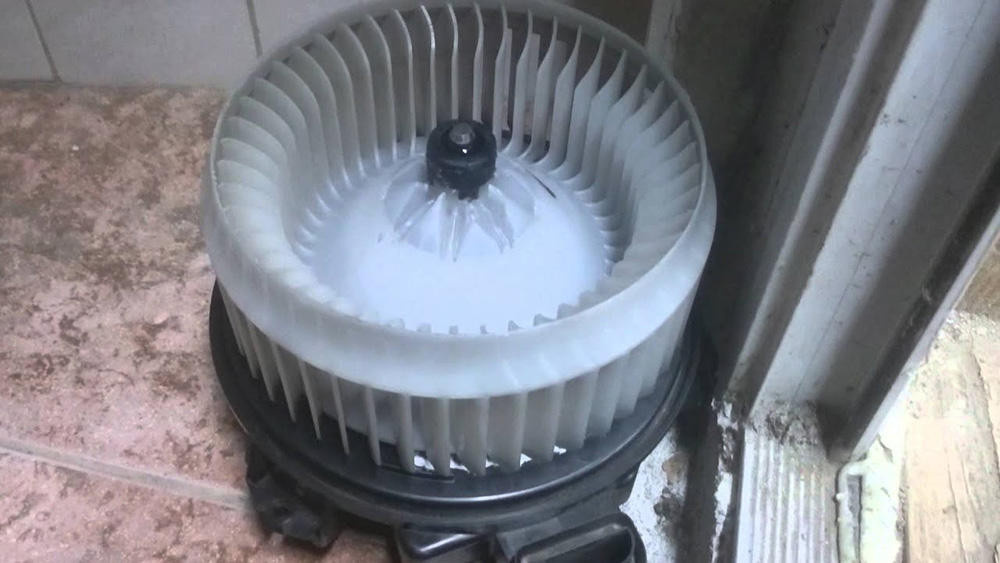
Dirty radiator
This problem is common to both radiators, and the older the car, the more clogged they are. The situation is aggravated by the use of low-quality coolant: our drivers make the mistake of using home-made compounds, and with the advent of heat, many generally switch to water in order to save money: in the event of a coolant leak, it is often expensive to add antifreeze. Meanwhile, water, especially from the tap, contains a lot of contaminants that settle on the walls of the radiator tubes in the form of scale, which significantly impairs its heat transfer. As a result, the liquid in the main radiator is not cooled properly, which leads to overheating of the power unit, and if the radiator of the Jetta 2 stove is clogged, the air entering the passenger compartment does not warm up well. The problem is solved by cleaning or completely replacing the radiator. For cars with relatively low mileage (up to 100-150-200 thousand kilometers), you can try a cheaper option. Wash technology:
- the old coolant is drained;
- both oven hoses are disconnected;
- we connect our hose to a drain pipe of sufficient length so as not to stain the space under the car with dirty washer fluid;
- if there is a pump or compressor, then you can try to get rid of antifreeze residues by supplying compressed air to the inlet pipe;
- fill the inlet pipe with a conventional electrolyte (we use a plastic bottle cut off in the form of a bell, the upper end of which should be higher than the radiator itself;
- leave this liquid for about an hour, then strain;
- we prepare a bucket with running hot water, lower both hoses there and turn on the pump, which should drive the liquid in both directions, we change the water as it gets dirty;
- we carry out the same operation, but instead of water we use a solution prepared from three liters of silite and two liters of tiret, diluted in hot water;
- rinse the radiator again with hot water with 400 grams of citric acid added and complete the process under running water.
As a rule, such discharge gives good results; When pouring new antifreeze, it is important to remove air from the system.
Faulty thermostat
Clogged thermostat valve is a typical malfunction of all cars without exception. Normally, the engine should warm up to operating temperature in no more than 10 minutes while driving (in winter, idling can take much longer). If the mobility of the valve is disturbed, which is facilitated by the formation of scale on the inner walls of the thermostat, it begins to wedge and eventually stops moving altogether, and this can occur in the open, closed or intermediate position. Replacing the thermostat is not a difficult procedure, the main problem is the dismantling of the pipes, since usually the clamp and hose stick to the fitting, and you will have to play around with their removal. The sequence of actions to replace the thermostat:
- unscrew the RB plug;
- put a container for antifreeze under the thermostat;
- remove pipes;
- with a 10 key, unscrew the two screws that hold the thermostat on the engine;
- remove the thermostat together with the gasket;
- we wait 10-15 minutes until the coolant merges;
- install a new part;
- add new antifreeze.
Diagnosing a thermostat malfunction is also easy: after starting a cold engine, the top tube should heat up quickly, and the bottom tube should cool until the coolant temperature reaches 70 degrees, after which the bottom tube starts to heat up. If this does not happen, or the pipes heat up at the same time, then the valve sticks.
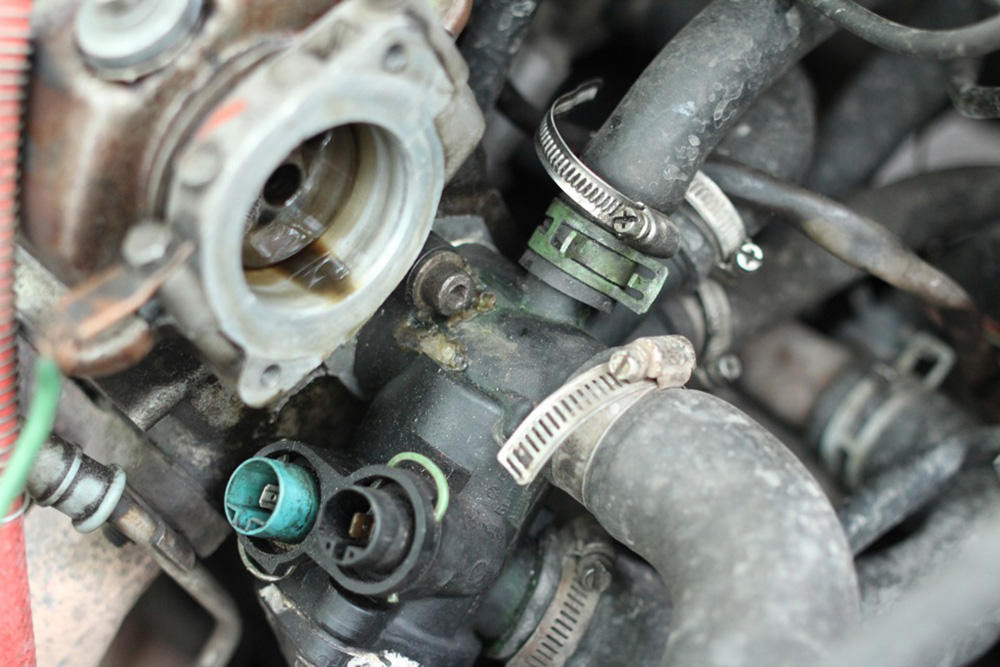
Pump failure
If the heater fan is responsible for forcing air into the passenger compartment, then the pump drives the coolant through the line, including to the stove radiator. If there was no pump, there would be no point in using coolant. A water pump malfunction will inevitably affect both the efficiency of interior heating (in this case, the Volkswagen Jetta 2 stove will heat poorly) and the operation of the power unit, which will start to overheat, which will be detected by the coolant temperature sensor. Therefore, problems with diagnosing this particular malfunction are usually does not occur. As for the repair, it consists in replacing a faulty pump, and this operation can be carried out independently. As usual.
Also, the pump may fail as a result of overheating, which leads to the destruction of the sealing ring or the deformation of the impeller and its clogging. If you are sure that the water pump is the cause of the increased engine temperature, it is worth checking the condition of the seal and connecting hoses. If everything is in order with this, then first you need to drain the antifreeze and disconnect the negative battery terminal. The Volkswagen Jetta pump is replaced in the following sequence:
- disassemble the generator by unscrewing the four screws;
- loosen the clamp on the lower pipe of the main radiator;
- remove the hose and drain the coolant into a prepared container;
- unscrew the plastic flange behind which the thermostat is located;
- remove the pump transmission pulley by unscrewing the three bolts with a 6 key;
- it remains to disassemble the pump, which is attached to the body of the power unit with ten 10 bolts;
- install a new pump and perform all operations in reverse order;
- fill in new coolant and bleed the airbags.
By the way, when replacing the pump, you can check the condition of the belt and, if necessary, replace it.
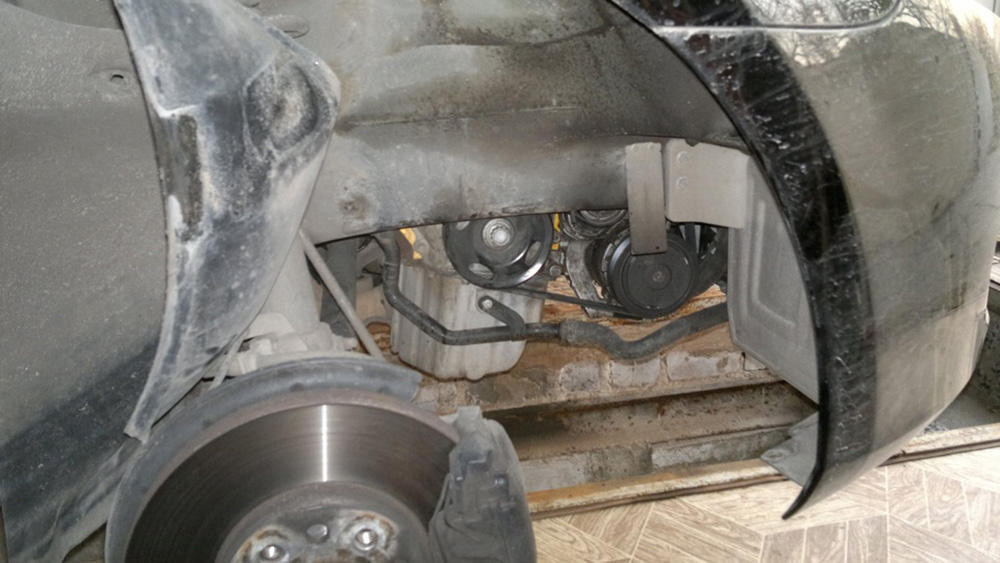
Leaky cylinder head gasket
This malfunction is not common, but, in addition to deteriorating the operation of a conventional heater, it threatens the power unit with considerable problems. Diagnosing the problem is easy. If an antifreeze leak occurs, accompanied by a change in the color of the exhaust from transparent to a thick white, this indicates fluid seepage into the cylinders and then into the muffler. Head gasket leakage is a serious problem, as coolant will also enter the lubrication system, reducing the viscosity of the engine oil, which leads to a significant reduction in engine life. Therefore, if a malfunction is detected, it is necessary to replace the gasket as soon as possible. This procedure is quite responsible, but you can do it yourself. In the absence of experience in disassembling the cylinder head, it is better to contact specialists.
